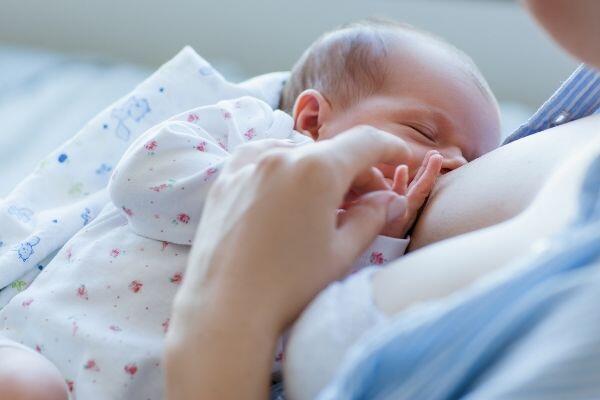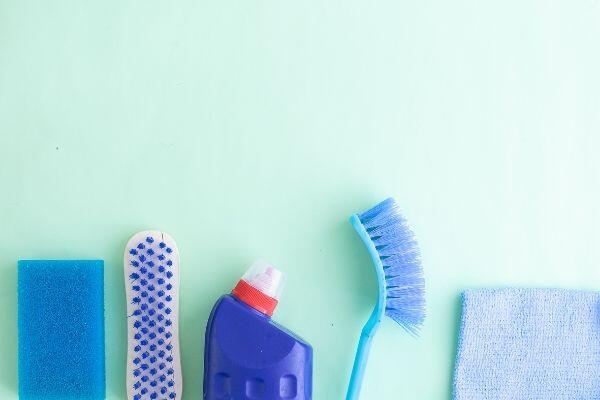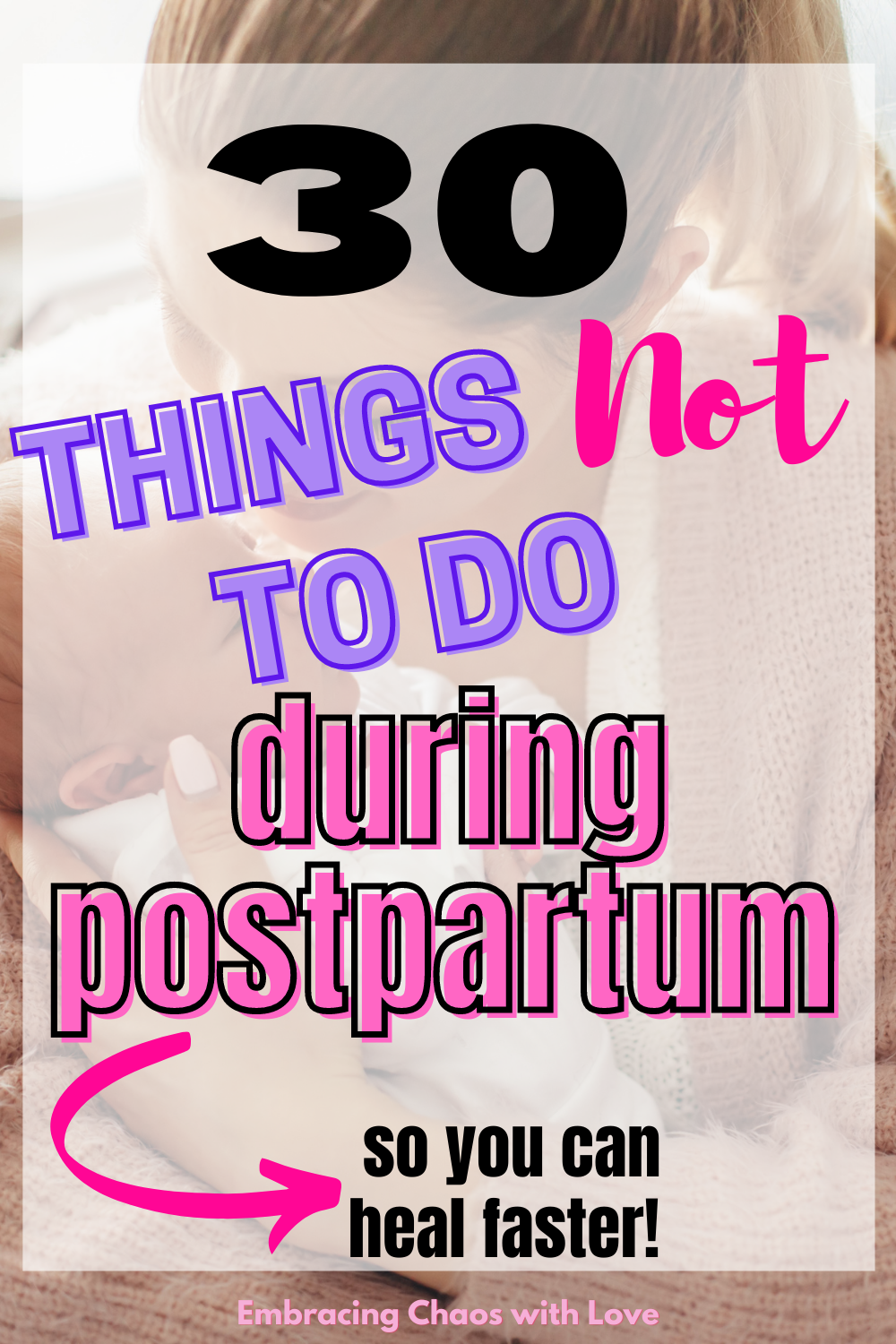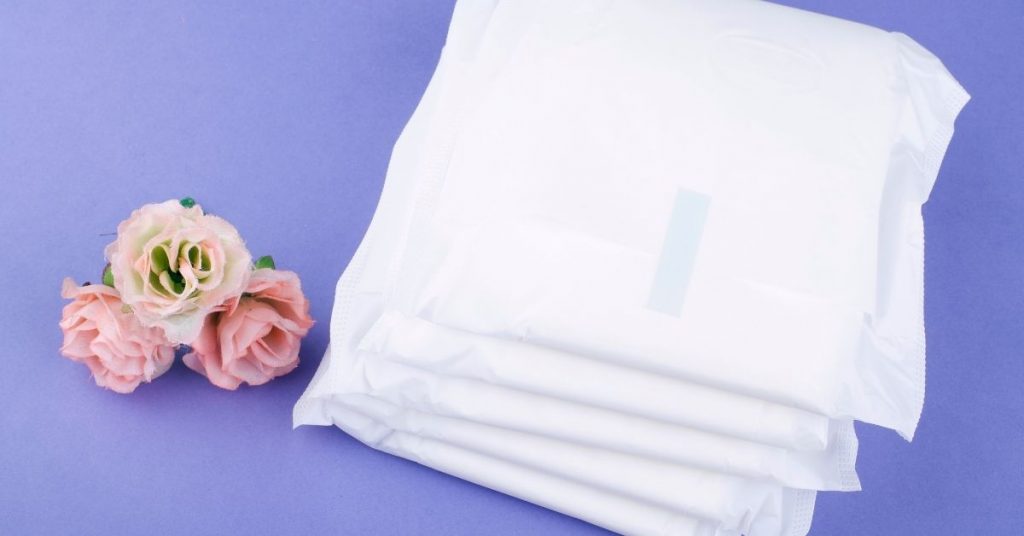After you come home with the baby, you will hear many tips on what to do. Most of those have to do with how to care for your newborn. Then you may get advice on how to recover during postpartum or how to deal with postpartum depression. So, I am going to tell you what you should NOT do after giving birth.
Yes, these are the things you should avoid at all costs for a few weeks at the very least, although 6 weeks would be better. You are healing and recovering from an amazing experience. A tough and difficult experience, albeit joyous. Whether you had a vaginal birth or a c-section, below is a list of what NOT to do after giving birth.
This post reflects my own opinions and experiences. This is not to be considered medical advice. Any questions or concerns should be directed to your healthcare professional.
Things to avoid after giving birth
1. Do not ignore signs you need to see a doctor
If you think something is wrong or doesn’t feel right, call your doctor! Please don’t ignore it and hope it goes away. You know your own body and know best when something isn’t right. Something small could mean something big. Pay attention to your blood pressure and talk to your doctor if it is high. You could have postpartum preeclampsia.
Your body has just gone through a lot, and now is the time to take care of it and listen to everything it tells you. There is no concern too small after you give birth. Any concerns or questions and give your doctor a call.

Things to look out for postpartum
These are a few things you should without a doubt call your doctor about immediately during postpartum:
- Heavy vaginal bleeding
- Passing blood clots larger than a quarter
- Fever
- Fainting or dizziness
- Severe headache
- Vision changes
- Difficulty urinating
- Strong odored vaginal discharge
- Chest Pain
- Difficulty breathing
- Sore breasts that feel hot
- Swelling and redness in legs
- Vomiting
- Irregular heartbeat
2. Do not Google everything
As a new parent, Google can take you down a rabbit hole fast! Don’t google everything! If you have a concern about something with you or your baby, call your doctor instead. The first week after delivery, your body is going through a lot and your uterus shrinks back to normal, causing a lot of different pains. If something feels off don’t hesitate to contact your doctor.
3. Do not go swimming or take a normal bath

Your body needs to heal before you fully submerge your body in water. It is important to wait to go swimming or take a normal bath to avoid infection. Sitting in water can potentially introduce bacteria to the vaginal area.
After my first child, I thought a postpartum sitz bath was just a normal bath with herbs and essential oils. Good thing I looked into it before taking one! I didn’t realize you should avoid baths until after you heal.
4. Do not use tampons
Tampons should not be used until after you have had your 6-week postpartum check-up. The area around your vagina is sensitive and susceptible to infection since you could have cuts. Tampons would not only be uncomfortable but could also increase the risk of infection.
During your lochi, which is what your extended period or vaginal bleeding after birth is called, use sanitary pads for the time being. Not only is your body healing, but you also want to be able to monitor the amount you are bleeding during your postpartum period and see if you have large clots.
5. Don’t have sex
I know what you are thinking; yeah, right, I’m way too exhausted to even think about sexual activity. But your sex drive may have other views. Just don’t do it. Wait for the okay from your doctor. You want to give your body time to heal. Also, think about what type of birth control you want to do before you start to have sex again. It is possible to get pregnant shortly after having a baby.
6. Don’t assume you can’t get pregnant
Once you do feel well enough and get the okay from your doctor to have sex, don’t assume you can’t get pregnant. Yes, it is possible to get pregnant right away again. Unless you hope for Irish twins, be sure to use protection or have some birth control when you start having sex again.
7. Don’t strain while you poop
Pooping after giving birth can be a little difficult and scary. It may also take 2 to 4 days to have a normal bowel movement. But don’t strain! Relax as much as you can and let it happen.

Your healthcare provider will usually recommend a stool softener during postpartum, be sure to take it. You can also include plenty of raw fruits and vegetables in your diet to help your bowel movements.
8. Do not hold your pee
Yes, you are sore and uncomfortable and there will be painful urination. Plus, you don’t want to keep getting up to go pee. However, go pee when you need to go pee, don’t hold it. If you have difficulty emptying your bladder or it is painful to go, contact your doctor.
9. Don’t diet
It would be best to eat a balanced and healthy diet, but you should not be limiting or cutting calories. Losing weight should not be a priority right after having your baby. If you are breastfeeding, you need almost 600 extra calories a day.
Not eating enough will make you feel more tired and can decrease your milk supply. Eat foods like fruits and vegetables as well as protein to help your body recover. In the days and weeks after delivery focus on eating healthy meals that you enjoy and give you nourishment. Don’t worry about trying to get rid of the baby weight right away, it will happen over time.
10. Don’t stop taking your prenatal vitamins
Prenatals are important during pregnancy because your body requires a lot of nutrients to help your growing baby. Nutrients like folate, calcium, and vitamin B6 become depleted, so it is important to continue taking prenatal after pregnancy.
Especially if you are breastfeeding, your body requires more nutrients now than during your pregnancy. Almost all of your vitamins and minerals taken in from your diet go straight toward making milk.

Postnatal vitamins help your body continue to get the nutrients you need—the same prenatal you were taking during your pregnancy work great as a postnatal.
11. Do not drink excessive alcohol
Excessive alcohol after childbirth can slow the healing process. Talk to your doctor first, but they will usually allow a limited amount of alcohol after giving birth.
If you are breastfeeding, the American Academy of Pediatrics recommends abstaining from alcohol for at least 3 months. Exposure to alcohol through breast milk could be damaging to a baby’s development. Alcohol can also impair a mother’s judgment to take care of her newborn safely.
12. Don’t start a strenuous exercise routine or lift heavy things
When you first come home, you should limit all activity. Avoid any heavy lifting and, if you can, limit stair climbing. As time goes on begin slowly, you can gradually increase your activity until you return to your normal routine.
This might take longer if you had a c section. You don’t want to tear any stitches from your cesarean birth, give your body time to heal. Any heavy lifting or exercise routine should still be avoided until you discuss it with your doctor at your 6-week pp checkup.
Worried about your postpartum mommy pooch? Here are some tips to lose that mommy pooch when you are ready.
13. Don’t wear tight clothes
After childbirth, you want loose light fitting clothes. Anything too tight is just going to be uncomfortable. Get some really comfortable postpartum underwear. If you had a cesarean birth you want something with a little compression but not too tight, make sure you get something perfect for you.
14. Don’t give up too soon on breastfeeding
Breastfeeding is hard! Those first few weeks after birth are the hardest and often make you want to throw in the towel. But don’t quit too soon. It is normal to take several weeks to adjust and get into a rhythm for you and your baby.

Your breasts will feel engorged and full until they even out to the needs of your baby. That is what makes the first weeks the hardest. You’re in pain, your nipples will feel raw and cracked (since they are building up a callus to nursing), and your baby is also learning how to latch.
It is rough on everyone. But, if you are patient and fight through it, it does get better and easier. Reach out to a lactation consultant if you have any concerns or breastfeeding problems.
In the meantime, you can relieve the pain of engorgement with some warm water and hand expressing a little in a warm shower. You might want to start using a breast pump right away to build up a breastmilk stash. Invest in a supportive bra with nursing pads to help ease the sore muscles. For your sore nipples, coconut oil is great; it helps relieve the pain and help them heal.
15. Don’t forget to sleep
Sleep deprivation is common after you give birth, but sleep is also essential for your postpartum care. Your body is in recovery, so plenty of rest for the first few weeks is essential. Take naps when your baby sleeps whenever possible. The proper amount of sleep can also help with the mood swings that tend to affect new moms.
Rest along with healthy foods, is also important for your milk supply; fatigue has been known to decrease your milk supply and your patience, which you are going to need an abundance of these first few weeks. So rest!
16. Don’t get embarrassed by your emotions
During the first couple of weeks after delivery, you’re going to go through hormonal changes. These changes can make you feel, especially emotional. Crying and irritability are normal. Especially when paired with a lack of sleep with a newborn.
Don’t be too hard on yourself. Accept that you are emotional and know that it is completely normal. If it persists or gets too much to handle, it may be more than just postpartum blues. Please seek medical care and talk to your doctor immediately because you may be experiencing postpartum depression.
17. Don’t let everyone tell you what to do
You are going to get a ton of advice once you have your baby. Everyone has a way of doing things and what they think is right. But, don’t let them tell you what to do and what is best for you and your baby. You also know what is best for your postpartum body.
18. Don’t have high expectations
Keep your expectations low right after you have your baby and until you fully recover. You are not going to bounce back to your normal routine. Your body is different now, and it is not going to go back to normal overnight. Give everything time, and don’t expect too much of yourself right now.
19. Do not be afraid to ask for help
Let other people take care of the household duties if possible. When someone does come over to visit, they will most likely ask if there is anything they can do… Yes! Don’t think you need to be polite and say no. Please give them a chore, have them unload and load the dishwasher, throw a load of laundry in, or run the vacuum.
20. Don’t let the fear overwhelm you
Trust your instincts. It can be hard bringing home a newborn and feeling like you know nothing about caring for a tiny human, but you can trust your instincts. You may surprise yourself. Don’t let the fear of not knowing what to do; make you feel overwhelmed. There are also a bunch of baby care classes you can check out if you still want some extra support.
21. Don’t use dishes you have to wash
Go with paper plates for the first few weeks home. And don’t feel bad about it! Anytime you don’t need to dirty a dish, don’t!
22. Don’t knock the mesh underwear
Mesh underwear is a necessity for sure! They are airy and comfy, yet they keep everything in place for your postpartum pain relief and bleeding. After giving birth, you don’t want anything too restricting, and a lot of normal underwear ends up being way making the perineum soreness feel worse. Until some initial swelling and pain went down, I would stick with the mesh underwear for maximum comfort.
23. Don’t ignore your emotions or write them off
While postpartum blues are completely normal, don’t ignore any emotion you are feeling. Acknowledge them, don’t ever ignore them. Being completely honest with how you feel and talking about it makes it easier to determine if it is normal baby blues or something more.
If any emotional feeling feels like it is getting too much, don’t be afraid to ask your doctor for help. If you feel any of the following feelings or symptoms, it may be an indicator that it is becoming more than the normal baby blues. It could actually be postpartum depression. Look out for any of these indicators:
- Sleep disturbance
- Loss of appetite
- Fear and anxiety
- Hopelessness
- Hostility or self-blame
- Inability to bond with your infant
- Difficulty concentrating or making decisions
24. Don’t forget to still have ‘you’ time
Your newborn baby is going to take up a lot of your time. You are constantly worrying about making the right decisions and want to tend to every cry this tiny new human makes. Don’t forget you are healing too, and you need to take care of your own health and give your body time to heal.
Take a bit to do something that made you You before you gave birth. Go for a walk, do a crossword puzzle, go window shop, or real shop, read a book, whatever gives you joy. Your baby becomes your whole new world, but don’t lose all your sense of self. Take a few minutes just for you, even if it’s just 10 minutes at a time. Anything is better than nothing.
25. Don’t forget to trust your instincts
Even though you are brand new at taking care of a tiny human, your instincts are usually good. Trust them! You carried your baby for almost 10 months, and you know them best, so do what you think is best.
26. Don’t wipe after using the bathroom
Your vagina is still very swollen, and you may have some stitches if you had a vaginal delivery. So you do not want to wipe after going to the bathroom. Instead, use a peri bottle, a little squirt bottle, to spray with warm water gently. Blot dry after cleaning.
27. Don’t stand too long
Standing for a long time can strain your body and cause your internal wounds to tear or stretch, making the healing time longer. During postpartum, your body is also readjusting, and your organs are going back to their normal spots.
By standing too long, gravity can cause your uterus to rest lower than normal, causing a prolapse. A prolapse is when the pelvic organs like the uterus, bladder, and bowel are no longer in the correct position. The tissue that holds them in place is stretching or sagging too much.
28. Don’t worry about chores
For the first 2 weeks, if not longer, forget about any chores that need to be done. Get help and support from your spouse or enlist the help of another family member. Family and friends are available to do the day-to-day chores, don’t feel like it has to be you.

29. Don’t feel bad if you don’t want visitors
Limit visitors and don’t be afraid to ask for space. This is time for yourself, your spouse, and your new baby. You are learning how to be a unit and getting used to your new normal. The last thing you want to do is host people.
If you don’t feel like having people come over, don’t be afraid to speak up. Or if you have visitors, limit the time! They can drop off some food for you, do a chore, visit a bit and then go. Make it clear before they come over how long they can stay or what to expect.
30. Do not neglect your relationship
Your relationship is going to change significantly after having a new baby. It is not all bad, but it will be different, and some things are a challenge to get used to.
The most important thing to remember is not to neglect it altogether. Keep communication open on everything from how you feel to what you need help with, to parenting strategies. You both have new roles now and going through adjustments.

Intimacy is going to be different for a while, as well. Take the time to tell your spouse how much they mean to you. Hold their hand for a minute, or pat their back as you walk by. Small gestures of love can have a big impact on both of you.
Things you need after giving birth
Postpartum Recovery Checklist
First-time mom tips after birth
- For the first 2-3 months, don’t worry about schedules or sleeping patterns. Just Snuggle, snuggle, snuggle!
- Pack snacks for you in the diaper bag whenever you go out.
- When you get a chance to cook something, make double and freeze half for those times you don’t have time or want to cook.
- All babies are different, don’t get caught up in comparing milestones.
- Be patient with yourself and allow yourself time to adjust to your new role with a new baby.
- Read about the advice I wish I knew as a first-time mom.
Postpartum healing tips
- Ice your perineum every few hours for the first couple of days at least.
- Take a sitz bath a few times a day in the first week.
- Eat lots of fiber-rich foods to stay regular.
- Go for short walks.
- For achy pelvic muscles or sore breasts, try warm compresses and gentle massages.
- Drink plenty of water.
FAQ for what to expect during postpartum
How does your body change in the weeks after giving birth?
After delivery, you will have a heavy postpartum period called a lochi. There may be small clots. The bleeding color will go from a red to a reddish-brown to a more yellow-brown light bleeding over a couple of weeks. You can potentially bleed for up to six weeks.
Your uterus will be shrinking back to normal size, causing cramping. You may have some stitches, but they usually will dissolve and not need to be taken out.
Your body will be achy, and you will have leaky, sore breasts. Most women also have postpartum hair loss. Your body is going through hormone changes as well as physical changes. The first few months of mom life can be quite an adjustment.
How long does it take to recover after giving birth?
Recovery is different for most women. This is why the first six weeks after birth is considered the necessary time to recover. Your body has been through a lot, and even if you don’t feel any soreness after only a week, you should still give your body time to heal.
For a vaginal birth, recovery can happen anywhere from 3 to 6 weeks, depending on whether you had a perineal tear and how long you were pushing.
With a C-section delivery, expect to spend at least 3 days in the hospital and a recovery time of 4 to 6 weeks after delivery before your body feels normal again.
How long should you rest after giving birth?
You should rest at least 3 weeks after delivery. Even after 3 weeks, you should be resting as much as you can. Your body has been through a lot and needs time to heal and recover.
What can I do to heal faster after giving birth?
- Rest as much as possible
- Stay hydrated
- Keep moving, walk a little each day.
- Eat a healthy diet with nutrient-rich foods.
- Use heat, ice, and pain relievers for aches and pains.
How long until you can lift after giving birth?
Don’t lift anything heavier than your baby for at least 6 weeks after giving birth. Avoid heavy lifting for at least 3 months after giving birth.
How to take care of your body after giving birth?
Sitz baths are advised to help heal your perineum as well as help with hemorrhoids. Cold packs or DIY padsicles are great to reduce swelling and heal your perineum as well. Avoid wiping after going to the bathroom after giving birth, and instead, use a peri bottle with warm water to rinse.
Try to eat a balanced diet and stay hydrated. Rest your body as much as possible, and avoid any unnecessary stress. Talk about your feelings to take care of your mental health.



